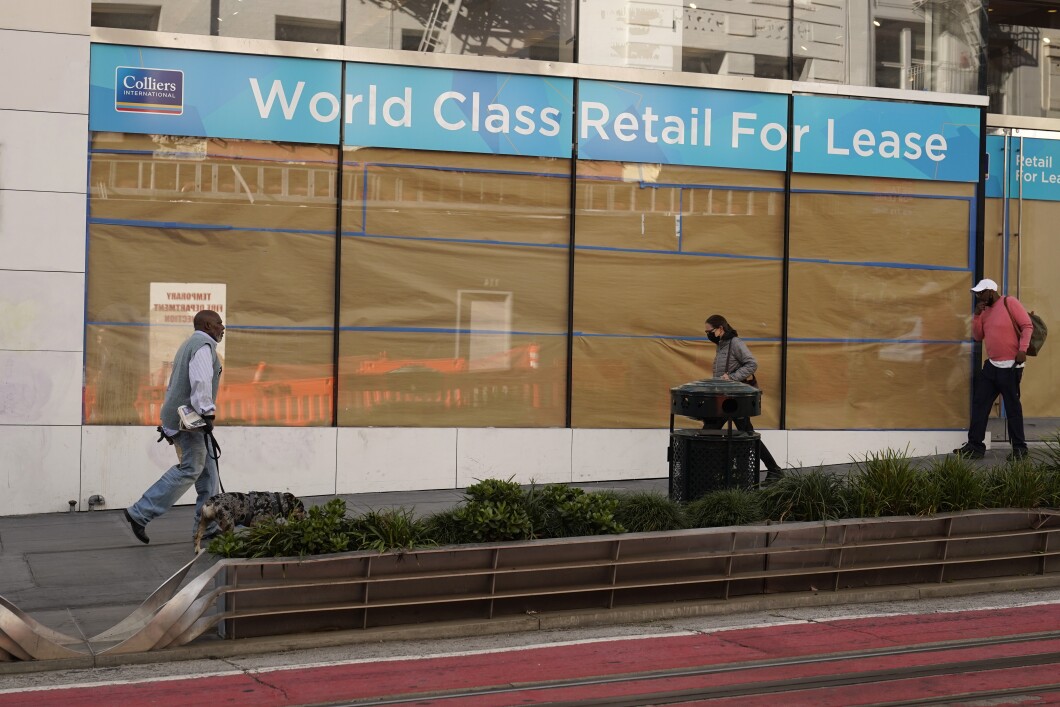
Mexican cartels are quietly expanding their global criminal empires to include mass theft operations targeting big-box stores, luxury retail brands, and small businesses, then selling the stolen goods online and laundering the profits through Chinese brokers.
The same transnational criminal organizations, known as cartels, that have facilitated the greatest-ever human smuggling operation across the U.S.-Mexico border over the past two years and simultaneously caused the fentanyl epidemic in America now have a hand in organized retail crime.
REPUBLICANS BLAST DOE GAS STOVE PROPOSAL AS ‘ALARMING VIOLATION’ OF LAW
“It’s a $70 billion a year enterprise — organized retail crime,” said Eric DeLaune, special agent in charge at the Department of Homeland Security’s Homeland Security Investigations, HSI, arm within U.S. Immigration and Customs Enforcement, during an announcement this week of a public-private partnership between HSI; U.S. attorneys in Alabama, Arkansas, Louisiana, and Mississippi; and industry leaders from Albertsons, Home Depot, and Walmart to create an Organized Retail Crime Alliance.
These organized theft rings are not merely shoplifters — they are part of a larger band of criminals that has infiltrated every state.
The CEO of Lululemon has stood by his company’s decision to fire employees who called the police when the store was being robbed.
CEO Calvin McDonald says that the athletic wear company has a “zero-tolerance policy” for employees “engaging during a theft” and said that two… pic.twitter.com/i9Qvf9T2mS
— Oli London (@OliLondonTV) June 6, 2023
“In contrast to shoplifters, organized theft groups engage in large-scale thefts which rely on teams of ‘boosters’ who steal goods from major retail stores, ‘cleaners’ who disguise the origins of stolen merchandise, ‘fencers’ who resell products through brick-and-mortar fronts and major e-commerce websites, and professional money launderers who funnel illicit profits to criminals orchestrating schemes,” HSI wrote in a June press release.
In the same way that Mexican cartels use Chinese brokers to funnel their profits from fentanyl back to Mexico, the cartel-operated retail crime rings send money made from reselling goods back to Mexico through the same Chinese money launderers.
The Chinese government attempted to crack down on the transfer of cash in 2017 when it placed a $50,000 U.S. dollar cap on individuals’ annual foreign currency exchanges. As a result, money launderers stepped in to assist illegitimate businesses. The cartels use legitimate financial accounts to launder bulk cash and interstate funnel accounts, stolen gift cards, and front and shell companies.
Since the pandemic, the public and private sectors have seen huge upticks in organized retail crime, which coincided with coronavirus lockdowns, rioting and looting following the George Floyd protests, and some liberal cities loosening punishments on crimes like theft.
The nation’s largest retail lobbying group, the National Retail Federation, said stores and retailers reported that the number of organized retail crime incidents increased by an average of 26.5% between 2020 and 2021.
Arkansas Attorney General Tim Griffin said the state has grappled with the issue at a Fortune 500 company level to mom-and-pop shops in small towns.
“Let me tell you the difficult thing to change and establish, and that is culture,” Griffin said during the same press conference as DeLaune. “It’s all over the country but particularly in some of our cities — when you have a culture that you can violate the law, steal, burglarize, do whatever you want and the feds and the state and everybody else will just sit around and watch, you’ve got a problem. And it goes way, way beyond organized retail crime.”
DeLaune said organized theft groups have “become emboldened,” stealing in daylight and shooting or assaulting customers and employees who stand in their way.
Over the past year, countless videos of employees being assaulted, even killed, by thieves at stores like Home Depot and Lululemon have gone viral. Two male employees at Home Depot were killed in separate incidents over the past year. Jeff Rasor, 83, was fatally assaulted when he attempted to ask a man walking out of the store with a cart full of merchandise for a receipt.
A Home Depot worker who was shoved to the ground by an alleged shoplifter died of his injuries. Police in Hillsborough, North Carolina, have been looking for the suspect who they say shoved the then 82-year-old man. pic.twitter.com/hhAt2xron0
— Inside Edition (@InsideEdition) December 6, 2022
A NRF survey in May concluded nearly two-in-three of all consumers are worried about gang-led shoplifting in their community. In cities, 75% of consumers were concerned.
Griffin said the impact extends beyond just a loss of taxes that the local and state government would have made off purchased merchandise.
“It’s particularly a big deal in Arkansas. We have everybody from Walmart and Dillards, which you’ve heard of, headquartered there all the way down to the retail establishments with one employee. It impacts them all,” Griffin said. “It impacts jobs. It impacts us because we’re paying for it. We’re either paying for it with our prices, or we’re paying for it as you heard before — when the companies, the businesses go out and we have less choice in our communities.”

Sen. Chuck Grassley (R-IA) proposed the Combating Organized Retail Crime Act in January to create a new center within DHS as a hub for local, state, and federal efforts to prevent and respond to organized retail crime.
The retail federation has for months pressured Washington to take up the bill without success. It issued another plea to lawmakers to pass the Grassley bill in June.
Absent more action, federal agencies can, on their own, choose to team up with businesses and local government.
The good news for retailers and government is that public sentiment for more action is on their side. The same May survey of consumers found the majority of people believed prosecutors, law enforcement, and the courts were too lenient on those who steal from stores.
“If you think … these criminal entities are just staying in their little lane and not doing anything else illegal, you’re wrong. These bad actors are involved in all sorts of stuff,” Griffin said. “And when you send a signal to them that you’re going to let them get away with the organized retail crime, they see that as an open door to just about everything else they want to do because they see a culture that puts up with criminal activity.”
CLICK HERE TO READ MORE FROM THE WASHINGTON EXAMINER
The four-state partnership should be seen by criminals as a line in the sand, he said.
“What this says is we’re going to come after you no matter where you are,” Griffin said.





